Geography Intent
Geography
Geography at Manor Wood
“The study of geography is more than just memorising places on a map. It’s about understanding the complexity of our world, appreciating the diversity of cultures that exist across continents. And in the end, it’s about using all that knowledge to help bridge divides and bring people together” - Barack Obama
Geography is essentially about understanding the world we live in. It helps to provoke and provide answers to questions about the natural and human aspects of the world. At Manor Wood Primary School (MWPS) all children are encouraged to develop a greater understanding and knowledge of the world, as well as their place in it. Our Geography curriculum enables children to develop knowledge and skills that are transferrable to other curriculum areas and which can and are used to promote their spiritual, moral, social and cultural development.
Geography is an investigative subject, which develops an understanding of concepts, knowledge and skills. At MWPS our intent, when teaching Geography, is to inspire in children a curiosity and fascination about the world and people within it that will remain with them for the rest of their lives equipping them well for further education and beyond. The curriculum is designed to ensure that teaching equips pupils with knowledge about diverse places (both in Britain and beyond), people, resources and natural and human environments, together with a deep understanding of the Earth’s key physical and human processes.
We teach the National Curriculum and our geographical knowledge and skills are progressive throughout each year group and key stage. This ensures that skills and knowledge are built on year by year and sequenced appropriately to maximise learning for all children.
Intent
Our curriculum, at present, is organised around three key principles:
Disciplinary Knowledge:
We support children to develop knowledge of Geography as a discipline by exploring what Geography is and what Geographers look like both in school, and in the wider world. Pupils at Manor Wood understand what skills Geographers use to inform their findings and they develop the five key Geographical working skills displayed below within lessons:

Substantive Knowledge:
Children learn the principles of people, place and the inter-relationships between these which form the basis of Physical and Human Geography. Crucial subject-specific vocabulary, diagrams and carefully identified core knowledge is shared with children on their "Sticky Knowledge" mats and children add to this growing bank of substantive knowledge about the world as they progress through school, embedding and building upon prior learning and understanding.
Interrupting the ‘Forgetting Curve’:
At Manor Wood Primary School, we are committed to interrupting the forgetting curve and ensuring that key knowledge ‘sticks’ with them as they move throughout school.
We prioritise knowledge that is most important for our children to know and include it within each topic’s ‘sticky knowledge mat’ which is an integral part of all Geography lessons and is a tool for pupils to refer back to as they move through a unit. We also embed key knowledge from units which children have studied in prior year groups through the implementation of our ‘Super Six’ and ‘Fantastic Four’ half termly knowledge checks.
Implementation
At MWPS we aim to:
- Develop children’s understanding that these key processes play a vital role in the development of key physical and human geographical features of the world.
- Develop their ability to use key geographical vocabulary which is appropriate and accurate and which evolves from EYFS to Key Stage 1 and through to Key Stage 2.
- Develop children’s skills to use and interpret a wide range of sources of geographical information
- Developing their skills to collect, analyse and present a range of data, gathered through experiences of fieldwork, to deepen their understanding of key geographical processes.
- Develop a genuine interest in the subject and a real sense of curiosity about the world.
Fieldwork
Fieldwork is a huge part of our Geography curriculum. Our Fieldwork lessons are designed to help our children develop their geographical skills and understanding by observing and investigating their local environment, be it our school grounds, on Carr Manor Fields or beyond. Fieldwork encourages our children to become critical thinkers and gain a deeper understanding of the world around them.
Assessment and Progress
By the end of each unit, pupils are expected to understand and be able to verbalise key topic knowledge outlined on the relevant ‘Sticky Knowledge Mat’ which has been used throughout lessons. Additionally, all pupils will have had multiple opportunities to develop their disciplinary knowledge throughout the unit too. Throughout the year, pupils will be challenged to remember key parts of that topic knowledge in their half-termly iterative tests known as ‘Fantastic Four’ (Years 1 & 2) and ‘Super Six’ (Years 3, 4, 5 & 6).
Impact
Children at Manor Wood view themselves as Geographers. They develop progressively more refined disciplinary knowledge and skills as they journey through school. They reflect on prior learning and ask questions to further their own knowledge. Teachers are supported in planning, delivering and reviewing a rich and progressive curriculum.
“Geography explains the past, illuminates the present and prepares us for the future. What could be more important than that?”
- Michael Palin
Get In Touch
- Carr Manor Road,
Leeds,
LS17 5DJ - 0113 268 9160
- office@manorwood.owlcotesmat.org

